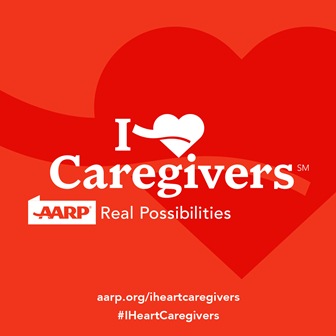AARP Hearing Center
by 
Caregiving for a family member or friend is a gift. It can also bring stress. While stress is part of caregiving year round, it can become even more intense during the holidays. Here are ten tips caregivers can use to help cope with stress at the holidays:
1 . Keep it simple. One way to cut stress is to streamline plans. Focus on having a few holiday activities and meals rather than extended celebrations. Choose only the most important dishes or decorations. Don’t get hung-up on unrealistic expectations. Remember: “Life is a banquet!”
2 . Focus on what the person being cared for wants to do. Ask the person you are caring for what matters most to them during the holiday season if they are able to communicate. Involve them in holiday preparations if they wish. For example, they may help make garlands with the grandchildren, talk someone else through preparing a favorite recipe, choose the music for the celebration or share what they are thankful for.
3 . Set reasonable expectations. Caregiving takes energy! Set limits on what you feel you can and cannot do. For example, if the primary caregiver traditionally hosts Thanksgiving at his or her home, it’s okay to ask to move your celebration or to ask others to take on new roles this year. If you are not the primary caregiver, offer to help our more so the caregiver can enjoy the holiday as well. Everyone will benefit!
4 . Plan ahead. The holidays are not the best time to start resolving key issues about patient care, finances or other potentially difficult conversations. Agree to avoid hot button issues during family celebrations. Have discussions as much as possible before and after the holidays, so you can enjoy your time together.
5 . Anticipate follow up. As much as you might plan ahead, issues often arise when families are together. Agree with family members in advance that if key issues are identified during the holiday that can wait, that they will be addressed in follow up after the holidays.
6. Find the positive. Many times we put our attention on what’s not working. Use the opportunity to also find what is working. Affirm each other’s strengths and thank each other for their contributions. Make Thanksgiving a true Thanksgiving!
7. Make it meaningful. Take pictures. Share stories. Make video. Spend your time in a way that matters most for you and your loved ones. Focus on being present rather than giving big presents.
8. Tap into caregiving resources. Resources and support for caregivers comes in many forms – information, peer to peer support, community services available for respite and many more. Find out what’s available to you that fits you caregiving situation and needs. Seek out support early so it’s in place when the holidays arrive.
9. Care for yourself. If there are holiday activities that are important for you as a caregiver, make a plan to do them if possible. Ask family or friends to help free you up, so you can do something you want to do. Be specific in your requests and say what you need. Or contact a caregiving support resources in your community like your Area Agency on Aging to find respite services. By nurturing yourself and doing something you love to do, you will be better prepared to cope with the situations the holiday may bring.
10 . Be flexible. The best made plans can always be changed as needed. At the saying goes: “Blessed are the flexible for they shall not be bent out of shape.”
Remember there is no perfect way to spend the holidays. By planning ahead, taking time for what matters most, focusing on relationships and nurturing yourself, you will go a long way down the road to reducing your stress and enjoying the season!
Key Caregiving Resources:
AARP Caregiving Resource Center: This online resource center offers news, information and a community of experts and other caregivers. www.aarp.org/caregiving
AARP Caregiving Support Line: This telephone support center connects you directly with an information specialist who can talk with you about services and support in your community. Call 1-877-335-5335 . Monday-Friday: 7 a.m.-11 p.m. ET; Saturday 9 a.m.-5 p.m. ET
AARP Virginia: AARP VA provides Virginia news and information about caregiving, offers caregiving presentations and workshops for family and professional caregivers and collaborates with selected organizations to increase access to caregiving services and programs across the Commonwealth. Learn more at www.aarp.org/va
Virginia Family Caregiver Solution Center: This website provides respite resources for caregivers across the lifespan — parents of children with disabilities and adults with disabilities, as well as for caregivers of older adults as well as services in Virginia communities and educational information. www.virginiafamilycaregiver.org































































